Converting Enzian into AAGL2021: A Step Toward Unified Staging
The revised American Society of Reproductive Medicine (rASRM) is the most widely used classification for endometriosis. This classification is easy to use but has some limitations, especially in describing deep endometriotic lesions and pain severity. On the other hand, the…
Key Points Lay SummaryNon-invasive MRI Based Detection of Uterosacral Deep Infiltrating Endometriosis
Deep infiltrating endometriosis (DIE) frequently affects the uterosacral ligaments, with a prevalence of around 70% in affected patients. However, there is no consensus on the imaging anatomy of the uterosacral ligaments (USLs). Currently, the assessment of USL endometriosis is subjective, lacking…
Key Points Lay SummaryEndometriomas and the Severity of Endometriosis
A new study published in the Journal of Clinical Medicine by Dr.Nezhad's group reveals that endometriomas, a form of deeply infiltrating endometriosis, are strongly associated with advanced stages of the disease. The authors investigated how the presence of endometriomas—whether on one side or both—correlates…
Key Points Lay SummaryPerformance of the 2021 AAGL endometriosis classification
The most common scoring system is the revised American Society for Reproductive Medicine (rASRM) staging system for endometriosis. However, this classification system was widely criticized for failing to correlate surgical complexity and to show patients' pain scales and fertility indexes.…
Key Points Lay SummaryIs there any relationship between age at diagnosis and the severity of endometriosis?
Endometriosis is an estrogen-dependent gynecological disease mostly encountered in reproductive-aged women. Early diagnosis is important, as endometriosis impairs the quality of life. The most accepted theory is that endometriosis is a progressive disease and its stage increases with age. Dr.…
Key Points Lay SummaryEndometriosis as a "syndrome" made out of different clusters
Endometriosis has been classified according to surgical findings. In the study conducted by Antonio Sarria-Santamera et al., the authors aimed to classify the patients with their comorbidities. The study explored the multidimensionality of endometriosis using cluster analysis. It categorizes women…
Key Points Lay SummaryA new classification called ENDOGRADE to rate surgical complexity in deep endometriosis.
Correlation with patient outcomes could not be identified in most endometriosis classification systems including the commonly used revised ASRM. Therefore, in addition to grading the depth and invasion pattern of the lesions, there is a need for a classification system to…
Key Points Lay SummaryPreoperative MRI: A Valuable Tool for Diagnosing Deep Infiltrating Endometriosis
The article by Sebastian Harth et al. is a retrospective study that aimed to evaluate the diagnostic accuracy of preoperative magnetic resonance imaging in detecting deep infiltrating endometriosis based on specific morphological criteria. The study included 160 patients who underwent…
Key Points Lay SummaryUltrasound and #Enzian Classification for Endometriosis
The #Enzian classification can ensure endometriosis is systematically described and classified, which can “greatly facilitates communication between physicians and patients, sonographers and surgeons,” according to an editorial article by Drs. Jörg Keckstein and Markus Hoopmann published in the European Journal of…
Key Points Lay SummaryLimitations of current surgical classification systems for endometriosis.
Many classification systems for endometriosis have been developed since the 1970s, and in a 2021 review, more than 20 of those systems were identified. The best-known and most frequently used are rASRM (revised American Society of Reproductive Medicine), the Enzian…
Key Points Lay SummaryThe #Enzian classification, an essential tool for surgical management of severe endometriosis
The lecture entitled "The #Enzian classification, an essential tool for surgical management of severe endometriosis" was presented by Professor. Jörg Keckstein, from the University Ulm, Germany, at the Annual International Medical Conference of the Endometriosis Foundation of America held in New York on…
Key Points Lay SummaryUltrasonographic Presurgical Staging and Classification of Endometriosis
Laparoscopic surgery is the gold standard for diagnosing endometriosis, but a preoperative imaging procedure is strongly recommended. Transvaginal sonography by a skilled examiner is not inferior to MRI diagnostics regarding sensitivity and specificity in predicting the extension of deep endometriosis. …
Key Points Lay SummaryAbdominal wall endometriosis is not a rare disease as supposed
Abdominal wall endometriosis is an iatrogenic type of endometriosis defined as the localization of endometrial glandular and stromal tissue on the abdominal wall including skin, the rectus abdominis muscle, and rectus muscle sheath. Cyclical pain, mass located on the abdominal…
Key Points Lay SummaryInternational Working Group's review on endometriosis classification systems
International Endometriosis Working Group including AAGL, ESHRE, ESGE, and WES published a comprehensive review on endometriosis classification, staging, and reporting systems in a recent issue of the journal named "Facts, Views & Vision in Obstetrics and Gynecology". Classification and staging…
Key Points Lay SummaryA novel approach to a common lesion: mapping adenomyosis by imaging modalities
Dr. Habiba from Leicester, UK, and Dr. Benagiano from Rome, Italy, have published their overview on adenomyosis in an attempt to set light on a clinically important topic in a recent issue of the "International Journal of Environmental Research and…
Key Points Lay SummaryA comparison of endometriosis Classifications: rASRM, EFI or Enzian?
None of the endometriosis classifications provide a clinically valuable system since the very first description of the disease in 1860. One unique terminology to describe the localization and the extension of the disease is needed, which should be the same…
Key Points Lay SummaryInternational definition and standardization for endometriosis
There is huge heterogeneity in classifications, subtypes, diagnostic and therapeutic interventions of endometriosis in published literature. The lack of a uniform and widely accepted terminology of the disease rose the necessity to argue and reach a common consensus with organizations,…
Key Points Lay SummaryThe new Endometriosis Surgical Complexity Classification: AAGL 2021
Multiple endometriosis categorizations have been approved in the recent forty years. The American Fertility Society proposed ASRM with a desire to score the impact of the endometriosis in 1996, which was updated several times later (rASRM), to predict infertility after laparoscopic operations. For…
Key Points Lay SummaryAnalyses of the main classification systems of endometriosis in terms of utrasound, MRI and surgery
Several classifications made by gynecologists, image readers, and radiologists lead to confusion while describing the situation and estimating the progress of endometriosis. Daniela Fischerova team from the Charles University of Prague, Czech Republic, analyzed the main classifications of endometriosis in three…
Key Points Lay SummaryMagnetic resonance imaging classification for the management of deep pelvic endometriosis
A new study published in the journal "Human Reproduction" reported that operating time, hospital stay, and postoperative complications in patients who underwent surgery for deep endometriosis can be predicted by the MRI. This result may be useful for clinicians to…
Key Points Lay SummaryReproductive capacity and recurrence rate after surgery for Stage III/IV endometriosis
If gaining fertility back is the main goal, the surgical removal of endometriosis lesions is globally recognized as first-line therapy. Even though, pre- and postoperative hormone therapy leads to a significant decrease in the spread of the disease measured with the…
Key Points Lay SummaryPreoperative serum CA 125 levels predict the severity of adhesions in endometriosis
Lee Y. et al., a group of researchers from Korea evaluated the correlation between preoperative serum markers and pelvic adhesions in endometriosis patients and explored the markers’ clinical value for outcome prediction. They have recently published their study in the…
Key Points Lay SummaryRecent advances in the diagnosis and treatment of endometriosis
Endometriosis is an estrogen-dependent disease that is commonly diagnosed in reproductive-aged women. The most common complaints of women with endometriosis are pain and fertility problems. Although many advanced types of research about the etiology, differential diagnosis and treatment have been…
Key Points Lay SummaryMachine Learning Classifiers for Endometriosis
Endometriosis is a complicated gynecological disorder that affects about 176 million women worldwide. It significantly impairs mental and physical quality of life in patients but the etiology is poorly understood. Endometriosis also causes a large economic burden due to loss…
Key Points Lay SummaryHow to predict complications for endometriosis surgery?
In a new study co-led by scientists at Sorbonne University, a nomogram is built to better inform patients about the risk of deep endometriosis surgery without bowel involvement. The findings have been published in the European Journal of Obstetrics &…
Key Points Lay SummaryHow to Classify Endometriosis for a better and effective evaluation
Endometriosis affects 10% of women in their reproductive period and causes infertility around 40% of women who have the disease. Peritoneal fluid may be one of the factors to facilitate the spread of endometriosis to ovaries, peritoneum and other deep…
Key Points Lay SummaryEndometriosis as a chronic disease: The benefits for the patients
Rebecca O'Hara et al. from Monash University, Melbourne, Australia, recently published their qualitative case study in the Journal "Australian Health Review", to build a National Policy about endometriosis considering as a chronic disease. In Australia, long-term complex diseases are managed…
Key Points Lay SummaryHow to improve the current ASRM classification of endometriosis?
In this article which recently published in Best Practice&Research Clinical Obst&Gyn. from the University of Sao Paulo, Brazil, Andres et al. penned a review of the classification of endometriosis in chronological order, and discussed the limitations of existing classification systems to…
Key Points Lay Summary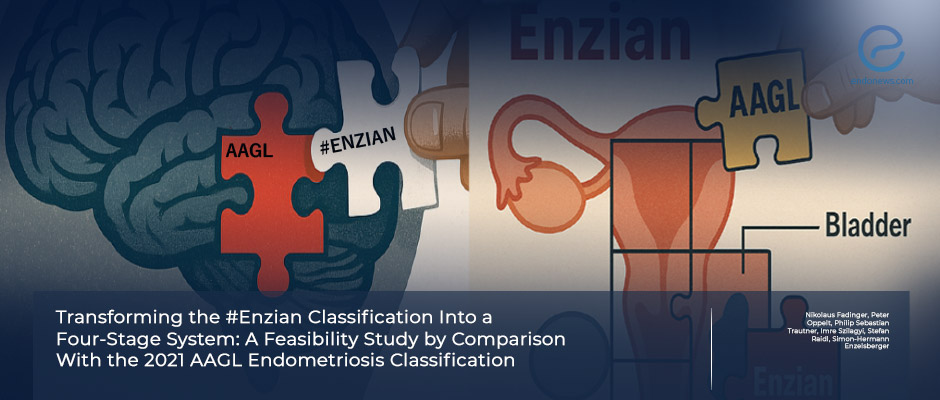
 By Selma Oransay
By Selma Oransay
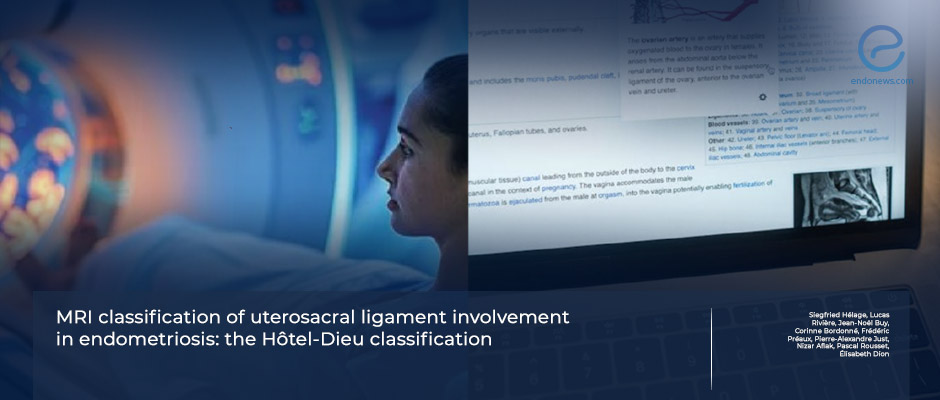
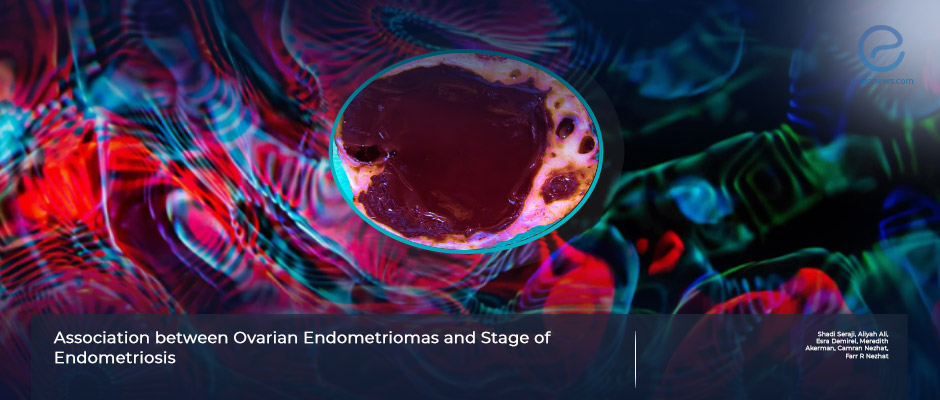
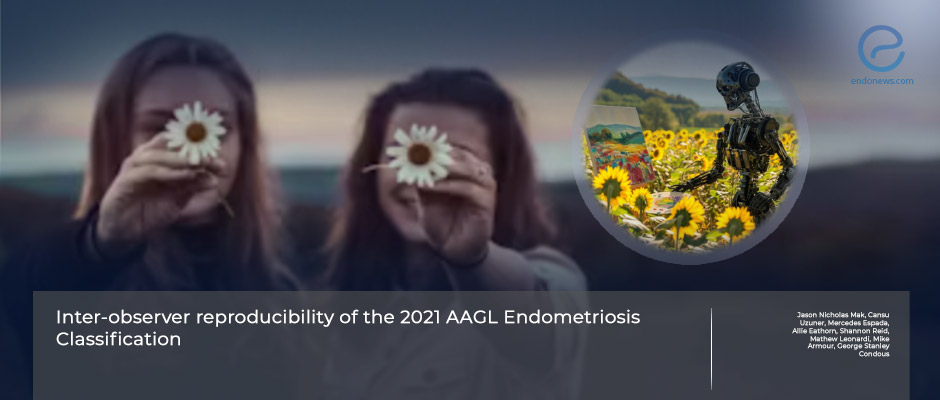

 By Hale Goksever Celik
By Hale Goksever Celik

 By Bahar Yuksel
By Bahar Yuksel



 By Özge Özkaya
By Özge Özkaya





 By Nasuhi Engin Aydin
By Nasuhi Engin Aydin






 By Irem Onur
By Irem Onur



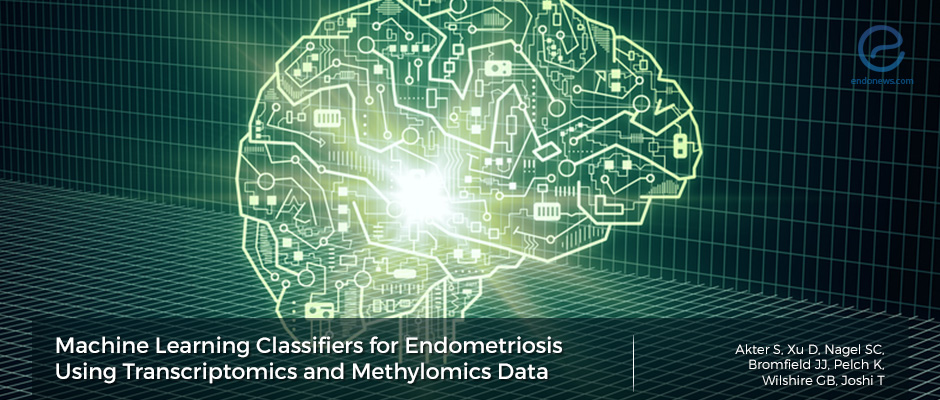
 By Dr. Youngran Park
By Dr. Youngran Park
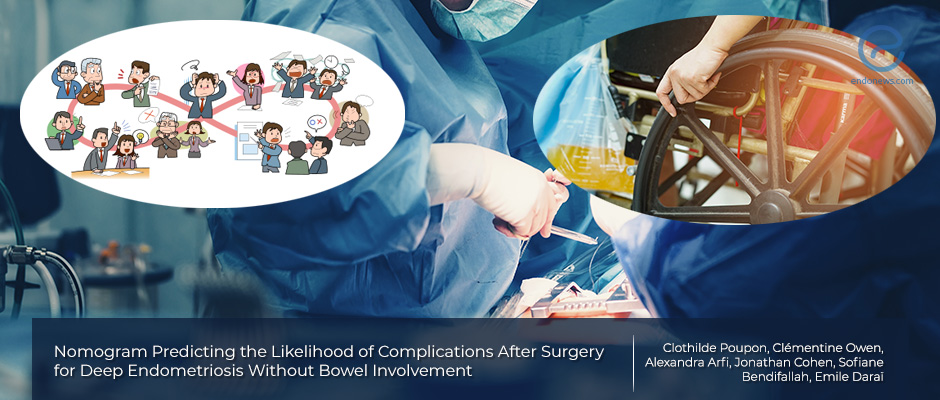
 By Timur Seckin
By Timur Seckin


